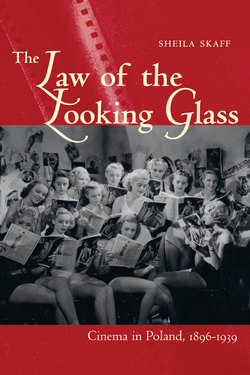The Law of the Looking Glass

Реклама. ООО «ЛитРес», ИНН: 7719571260.
Оглавление
Sheila Skaff. The Law of the Looking Glass
Отрывок из книги
The Law of the Looking Glass
Series Editor: John J. Bukowczyk
.....
This book attempts to recapture the multilingualism and social diversity of cinema in the partitioned lands and independent Poland and to show that the establishment of a national identity through film is a complicated matter in which oppositional principles were only sometimes at play. To this end, it accepts all films, regardless of language, made in the regions of the three empires that later became an independent country and, thereafter, in that country. It avoids mention of the careers of filmmakers, actors, and others outside of this geographic area because of space constraints and the inevitable judgments concerning loyalty to the nation that such mention entails. Instead, this book is concerned with the activity that took place in a certain region at a certain time. As it challenges established models of the region’s national cinemas, it creates a new framework for the study of film production and exhibition in early, silent, and early sound cinema. At the same time, this project seeks to expose and analyze an enduring ambivalence to a language-based national cinema and a unique belief in the communicative properties of images in Poland. Using Irzykowski’s “law of the looking glass” as its starting point, it locates these characteristics in the privileging of visual imagery over dialogue by film directors, producers, distributors, critics, and audiences in every stage of the industry’s development during the first four decades of cinema.
Stefania Beylin writes, “Crowds, mainly juvenile boys curious about the moving images, who saw in them some kind of magic, gathered at the first short films. That same audience had come there before in order to watch the so-called disappearing pictures—the magic lantern that showed scenes from Paris, Rome, the seaside, and a waterfall—in a large hall (in which there had once been a riding school). Compared to the new invention, what not long before had seemed so attractive now lost its charm. Those images were immobile, and the public, particularly school-age youth, demanded movement.”34
.....